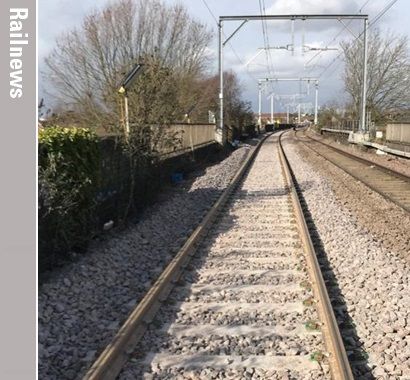THE government should launch a 30-year programme of railway electrification if it is to meet the legally binding target of net zero carbon emissions by 2050, according to the House of Commons Transport Committee. The Committee’s chair has also criticised the continuing use of trains by some operators which are not fully accessible.
A new report from the Committee points out that a former minister wanted to replace all diesel trains by 2040. The target was unveiled in February 2018, when transport minister Jo Johnson, who is the prime minister’s brother, said: ‘I would like to see us take all diesel-only trains off the track by 2040. If that seems like an ambitious goal – it should be and I make no apology for that. After all, we’re committed to ending sales of petrol and diesel cars by 2040.’
The Committee says a long-term electrification strategy should be a ‘matter of priority’, including the ‘use of battery and hydrogen technology that is underpinned by appropriate costings, a credible delivery plan and enabling targets and milestones’.
It continues: ‘As electrification is the only immediate decarbonisation option for most of the network, the Department should publish the list of ‘no regret’ electrification schemes identified by Network Rail and confirm which will come first and when.
‘Uncertainty is a key obstacle to delivering a decarbonised railway. The Committee heard that delays to key transport strategies such as the Department’s Decarbonisation Plan, the Rail Reform White Paper and the Williams Review, combined with a mismatched target framework, have cost the sector valuable time for planning and investment.’
The Committee’s chair Huw Merriman added: ‘Decarbonising rail, and making our trains cleaner and greener, will be a considerable challenge for us all. Transport accounts for the largest source of carbon dioxide emissions of any sector in the UK at 27 per cent. Trains in Great Britain still rely mainly on diesel traction – an estimated 62 per cent of the rail network is diesel-powered compared with 38 per cent electrification. It will be some time before battery and hydrogen-powered trains are ready to depart the station, leaving electrification as the main option.
‘Electrification has a patchy record of delivery. It’s time to invest in a rolling programme which will speed up delivery, drive down costs and hold to account those who do not deliver to time or budget.
‘We know that the Government is keen to encourage the development of hydrogen power and ask that the decarbonisation plan is flexible enough to include alternative and new technologies. To help, our research and development capabilities must be properly supported and funded.
‘Rail contributes less than one per cent of the total UK annual greenhouse gas emissions and has a huge role to play in helping us move people and goods around using zero-carbon solutions. We must ensure that we don’t push freight on to the roads as the move from road to rail freight is an important part of meeting our net zero targets.
‘As for the passenger service, the industry has had 11 years to prepare for legislation making it unlawful for a passenger rail train to be in service unless it is accessible. There are at least four train operators that are still not complying with legal accessibility requirements. It is not acceptable for the Department for Transport to continue to sign dispensations. Public transport must be accessible to all. The Government and industry must make this happen.’


